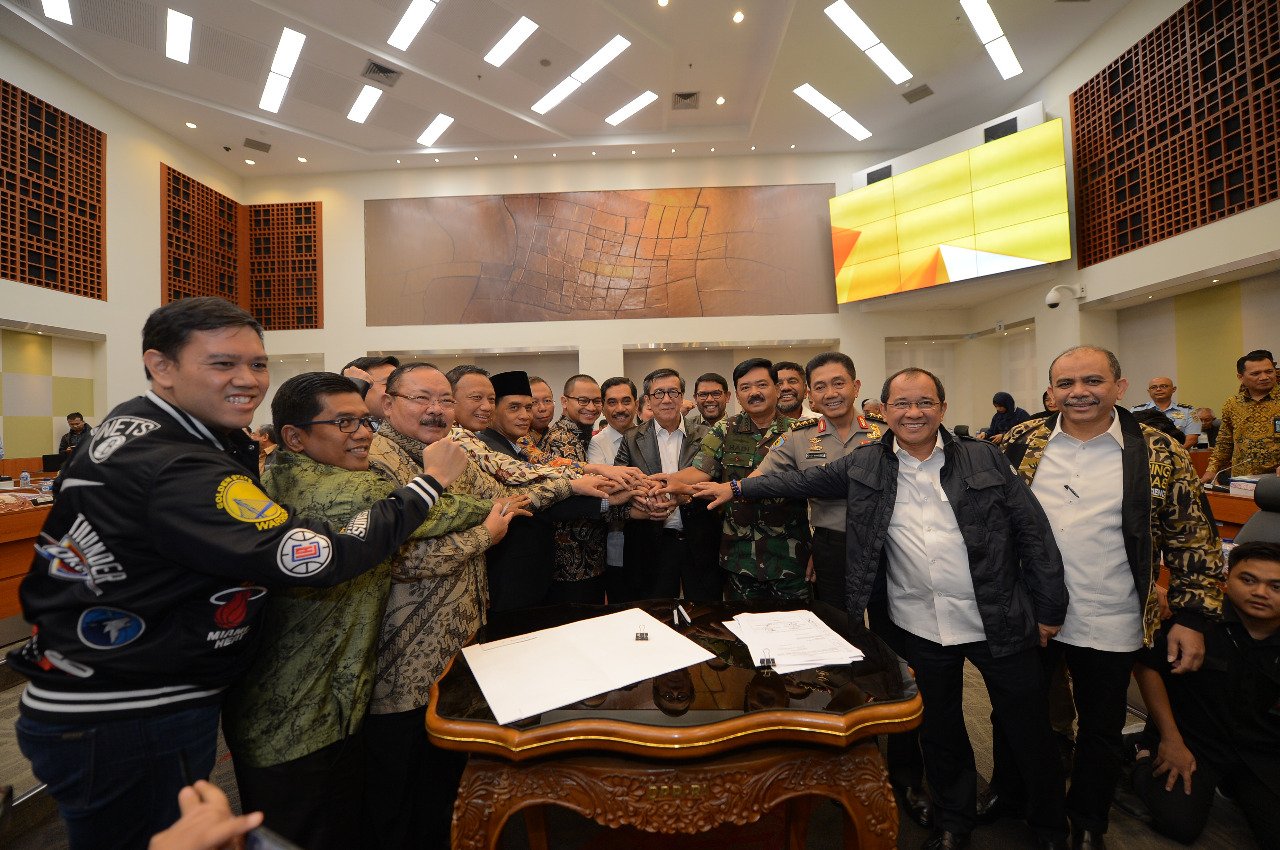In large part due to last week’s horrific terrorist attacks in East Java and Riau, as well as pressure from President Joko Widodo, the House of Representatives (DPR) today finally ratified revisions to the anti-terrorism law (RUU Antiterorisme), which have been under discussion since 2016.
One issue that was holding back the revision’s passage was disagreement over the exact definition of “terrorism” used in the legislation. However, after a meeting with the Ministry of Justice and Human Rights last night, a special committee tasked with formulating the RUU in the DPR agreed upon the following:
Terrorism is an act that uses violence or the threat of violence that creates an atmosphere of terror or fear in a way that can cause mass casualties and / or cause damage or destruction of strategic vital objects, environment, public facilities or international facilities with motives that are ideological, political or intention to threaten state security.
“After some consideration, the government eventually agreed that we accept that definition,” said Minister of Justice and Human Rights Yasonna Laoly, as quoted by Kompas yesterday.
“All factions [in the DPR] also agreed. So I don’t think there will be more debates about RUU Antiterorisme.”
This morning, at the plenary session in DPR, Kompas reported that RUU Antiterorisme was passed unanimously and without any interruption.
Law no. 15/2003 on Criminal Terrorist Action, which was passed soon after the 2002 Bali bombings, is often criticized for being inadequate in that it largely limits authorities to merely be responsive against attacks. The revisions, proposed after the 2014 Jakarta terrorist attack, broaden the definition of terrorism and give police the power to detain suspects without trial for longer. The changes would also allow police to arrest people for hate speech or for spreading radical content, as well as those taking part in para-military training or joining proscribed groups.
Activists warned that some of the suggested revisions to the anti-terrorism law, such as allowing authorities to wiretap suspected terrorists, goes against the basic principles of human rights and could easily be misused should the definition of terrorism remained ambiguous and broad.
Shortly after the recent terrorist attacks, President Jokowi urged the DPR to pass RUU Antiterorisme into law or he’d issue a Perppu (Government Regulation in Lieu of Law) by June, which is now no longer necessary.





Reader Interactions